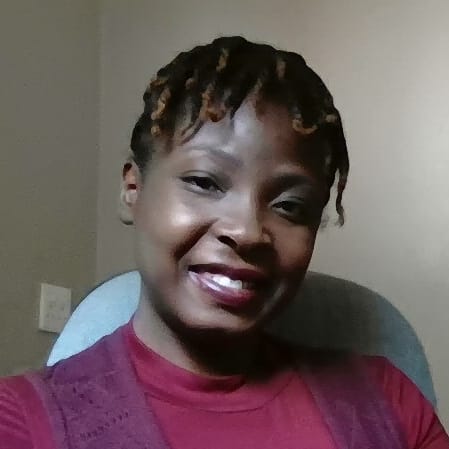Recently, there was an interesting story on the news about how a young adolescent boy suddenly deteriorated in health and sparked talk about the association between teen health and sleep habits. Apparently, this young man, without his parent’s knowledge, had secretly started a dare from his friends to break the Guinness world record for not sleeping.
The young boys had heard the story of the current world record for staying awake set by a 17-year-old boy who, back in 1964, had stayed awake for 11 continuous days. Obviously, with boys being boys, they thought it would be cool to give it a shot too, without even checking what the side effects could be; and that’s how the dare came about. McKinney Christian Counseling provides guidance for individuals navigating challenges like these, emphasizing the importance of mental and physical well-being.
In just a few days their school teachers noticed that the one boy who’d drawn the short straw suddenly started coming to school looking pale, hardly able to utter a word, and generally in bad form. That’s the way this sordid game came to light as more and more strange changes were noticed in him, and his mental and physical state went drastically downhill.
 When concerned teachers spoke with his equally perplexed parents, who could not get him to admit what he had done, they all contacted a local youth counselor who got him to disclose that he had not been sleeping because of this bizarre dare. Luckily, this boy was found out quickly and taken to the hospital to be treated for low blood pressure, slurred speech, and confusion.
When concerned teachers spoke with his equally perplexed parents, who could not get him to admit what he had done, they all contacted a local youth counselor who got him to disclose that he had not been sleeping because of this bizarre dare. Luckily, this boy was found out quickly and taken to the hospital to be treated for low blood pressure, slurred speech, and confusion.
The good news is that the story has now stirred so much discussion that it has highlighted the fact that many other teens have signs of not sleeping well, even if it’s not a dare or prank. In response, this prompted many local programs to raise awareness regarding sleep among young people.
In this article, we will be diving deep into the topic of what is going on in teenagers’ bodies that makes them need sleep more, and ways to get them to have quality sleep for good teen health.
Is there a wrong and right way for teenagers to sleep to promote teen health?
Well, yes indeed there is a proper way and a less-than-ideal way to sleep, especially for adolescents whose bodies already experience a maelstrom of changes and need to sleep more now than at any other phase in their lives.
- If your kid is aged 13-18, their recommended sleep length is 8-10 hours of sleep per night, but this is disturbed by a shift in the natural sleep rhythm that makes teens start to feel sleepy much later at night, around 10 or 11 p.m. or even later.
- Hormonal changes that alter the chemical balance within a teen’s body will make it hard for teens to fall asleep, which compounds this problem.
- School, peer pressure, and other increased stresses, dramas, and anxieties add to this insomnia, making it harder for teens to fall or stay asleep.
- All the changes in modern lifestyles of this media-saturated generation – being glued to smartphones, computers, or being connected 24/7 to the internet – don’t help a teen sleep.
If not monitored well when your teenager does not sleep well, chances are that many facets of teen health and lifestyle, such as concentration, memory, and anxiety, will contribute to making them more vulnerable to health concerns later on, like obesity, diabetes, and cardiovascular issues.
Such poor sleeping will also raise the likelihood of risk-taking behavior in your teenager and disciplinary issues at school with warnings or chances of suspension and even expulsion.
Is there a way to check for irregular teen sleep-wake patterns?
If you’re reading this article and want to check on a teenager’s sleep health, you can ask them to take a self-check sleep questionnaire like this one.
This questionnaire will ask questions such as:
- I feel sleepy when I ride on a bus to a school event like a field trip or sports game.
- In the morning when I am in school, I fall asleep.
- When I am in class, I feel wide awake.
- I fall asleep when I ride in a bus, car, or train.
- During the school day, there are times when I realize that I have just fallen asleep.
If you’re a parent, you could also decide to take a survey for your teenager to see how well you know your kid’s sleep habits, like this one.
This questionnaire will ask you questions like:
- Write in your son/daughter’s bedtime on a typical school/weekday night.
- Write in your son or daughter’s bedtime on a typical non-school/weekend night.
- Write in your son/daughter’s wake time on a typical school/weekday night.
- Write in your son/daughter’s wake time on a typical non-school/weekend night.
Once you complete either of these questionnaires, you use the scoring keys below to calculate the right score for each statement and then add the numbers together to get the teen’s total sleep health score. A higher score shows that the teen isn’t getting healthy sleep which might also be a sign that they have some kind of sleep disorder like obstructive sleep apnea (OSA).
By addressing this sleep quality problem, interventions can be made by encouraging normal sleep schedules, appropriate sleep hygiene practices that involve routine bedtime, limited exposure to screens before bedtime, and a calming pre-sleep routine.
In the case of a possible deeper problem, such as a disorder, it will be wise to speak to a medical professional or a mental health specialist regarding this teen’s health sleep score. A qualified sleep therapist is well-trained to root out any underlying causes and prescribe appropriate treatments that will help your teenager enjoy this important time in his or her life.
Christian Counseling for Teens in McKinney, Texas
Reach out to our office today at Texas Christian Counseling, McKinney to meet with a counselor in McKinney Christian Counseling, Texas who can help.
“Sleepy Teen”, Courtesy of Kinga Howard, Unsplash.com, CC0 License
-
Grace Mavindidze: Author
Grace Mavindidze is an experienced Journalist of close to two decades and a certified SEO specialist writer who enjoys traveling, meeting people from a broad cultural spectrum, as well as engaging people in topics that are informative, entertaining,...
DISCLAIMER: THIS ARTICLE DOES NOT PROVIDE MEDICAL ADVICE
Articles are intended for informational purposes only and do not constitute medical advice; the content is not intended to be a substitute for professional medical advice, diagnosis, or treatment. All opinions expressed by authors and quoted sources are their own and do not necessarily reflect the opinions of the editors, publishers or editorial boards of Stone Oak Christian Counseling. This website does not recommend or endorse any specific tests, physicians, products, procedures, opinions, or other information that may be mentioned on the Site. Reliance on any information provided by this website is solely at your own risk.





